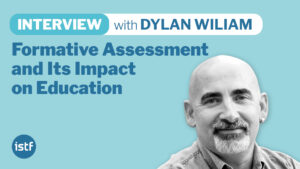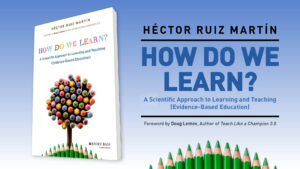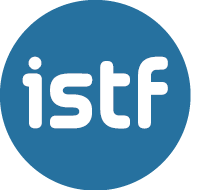researchED, the most important international event on evidence-informed education, took place in Barcelona on June 3 organized by the International Science Teaching Foundation (ISTF), with the sponsorship of Science Bits and Math Bits and in collaboration with the Erasmus+ co-funded project Illumine.
Founded in the United Kingdom by professor and writer Tom Bennett back in 2013, researchED was born with the desire to foster an open dialogue between science and educational practice. In this year’s event, which ran from 9:00 a.m. to 6:30 p.m., researchers, teachers, and educational managers met to narrow the gap between scientific research in education and educational practice in the classroom.
researchED First Barcelona Edition Highlights
To open the event, Tom Bennett, who could not attend the event, addressed the attendees via a recorded video message. Héctor Ruiz Martín, director of the International Science Teaching Foundation (ISTF), then welcomed the attendees. The conference consisted of six presentations given by renowned researchers and teachers, leaders in education based on scientific evidence. The presentations discussed new perspectives and tools to improve education, which are aimed at enriching teaching practice and stimulating reflection on the best pedagogical strategies.
Six Internationally Renowned Speakers
The opening presentation was given by Marta Ferrero, a teacher, educational psychologist, and Vice-dean of Research and Transfer in the Faculty of Education and Teacher Training at the Universidad Autónoma de Madrid. In her talk, called The Value of Basing Educational Practice on Scientific Knowledge, Ferrero stressed the importance of supporting actions in the classroom with in-depth knowledge of didactics. She also highlighted that the use of scientific evidence when making educational decisions provides greater certainty about the effectiveness of pedagogical practices and grants autonomy to teaching professionals. She also spoke of the indiscriminate use of intuition and the replication of unverified models, which are accepted by popular wisdom.
The second session was given by Héctor Ruiz, director of the ISTF and also the host of the conference. In his talk on The Basic Ingredients of Learning According to Science, the renowned researcher and disseminator, specializing in neuroscience and cognitive psychology, highlighted the importance of promoting reflective thinking in students to achieve meaningful learning. Ruiz shared valuable perspectives on the mechanisms of memory and learning and made it clear that understanding how we learn is essential to enhance teaching.
UK-based, Irish-born teaching and learning expert Carl Hendrick took over after the coffee break, with a talk called It is Not What it Seems: The Paradoxes of Teaching and Learning. Hendrick, who has vast teaching experience, emphasized the need to train teachers informed by research evidence to empower them in their work. He explained that teaching results are not always immediately visible and challenged the belief that the seemingly most productive activities are always reliable indicators of lasting learning. He further highlighted that, contrary to what we might think, achieving is more important for motivation than the motivation to achieve is.
The next speaker was Doug Lemov, renowned US teacher educator and founder of Teach Like a Champion. His talk was called How to Perform a Formative Assessment On the Fly. Lemov underlined the importance of ongoing assessment and its impact on the relationship between teachers and students. He also pointed out that careful observation on the part of the teacher is an essential skill and that learning involves a change in long-term memory. Lemov challenged the idea that we can multitask and explained that selective attention is key to avoiding attention blindness.
The founder of Teach Like a Champion was news himself at researchED Barcelona: the International Science Teaching Foundation presented the translation of his best-seller Teach Like a Champion 3.0 into Spanish, a book that was first published 13 years ago and which the author has been updating on a regular basis. The event marked the launch of Enseña como un Maestro 3.0 in Spain, and the book quickly ran out of copies at the small stand put together by Science Bits and Math Bits partners in the venue and in collaboration with the European Project Illumine.
After Doug’s talk, lunch was held in the dining area at the Auditori. This meeting and resting space was the ideal environment for the exchange of ideas, debate and collaboration between teachers and researchers.
Right after the break, Jonathan Firth, professor and researcher at the University of Strathclyde (Scotland), gave an inspiring talk called Helping Students Regulate Their Learning. Firth spoke about metacognition (the ability to reflect on one’s thought processes), cognition (a set of skills and knowledge) and motivation as the three keys to learning. In his opinion, teaching effective learning strategies and promoting self-efficacy are essential elements to motivate students and help them make better study decisions autonomously.
Marta Portero closed the event with a talk called Pseudoscientific Myths about Learning. A researcher at the Institute of Neurosciences of the Universitat Autònoma of Barcelona, Marta talked about the need to rigorously and critically include scientific evidence in teaching. In her talk, given as a quiz show, Portero tackled misconceptions and asserted that knowledge about the biological mechanisms of the brain is not enough to design effective educational programs. In addition, she challenged different beliefs associated with better learning or better teaching, such as the belief in learning styles.
After the conference, all attendees agreed on the need to organize more events such as researchED, which bring the science of learning closer to the educational community.
Event’s official website:
https://researched.es/











Leave a Reply